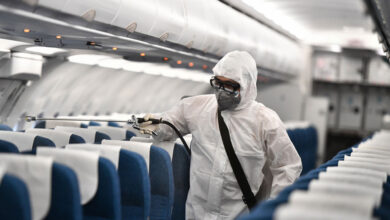Dr. Bosun Tijani’s AI Ambition: Another Billion Naira Pie in the Sky ?

It is indeed a hallmark of the Nigerian government, at all levels, to delve into endeavours that the country may lack the capacity to execute or, in some cases, may not even require.
For instance, despite the lack of the capacity to manufacture basic car parts, Nigeria has a full-fledged space agency and an annual budget for space exploration. The misallocation of resources is also evident in states like Osun and Ebonyi, where billions are invested in building airports while schools and hospitals remain in deplorable conditions.
I have, many times in the past spoken, against such misplaced priorities as they not only waste our money but also distract us from important issues that must be tackled immediately. However, not every ambitious government plan should be deemed a misplaced priority. I am leading with all this because I am writing in favour of an ambitious government plan that might be seen as a frivolity when it is in fact important.
Also Read: Foreign currency shortages are cutting Nigerians off from Apple Music, AliExpress, and more
I refer here to the planned national Artificial Intelligence (AI) strategy announced by the new Minister of Communications and Digital Economy, Dr. Bosun Tijani, which aims to “help shape our approach to building innovative tech solutions to our most pressing national problems.” The minister called for Nigerian AI experts, at home and abroad, to join his effort to co-create the national strategy.
It is of course not surprising that some critics have denounced the effort of the minister on AI as elitist. Writing on X (formerly known as Twitter), Olumide Adesina, a financial market analyst, tweeted, “The elitism approach in Nigeria scares me, all we see is the propagation of needless, cosmetic approach that often shows selfish interests. What will AI do for a hungry, angry and uneducated population? Every serious country knows the importance of food and education.”
Adesina is right that tackling food poverty and poor-quality education ought to be Nigeria’s most important priority, but neither of these problems can be solved by a Minister of Communication and Digital economy. While the presidency and the Ministries of Finance, Agriculture, and Education work on solving food and education, the Minister of Communication and Digital economy should be working towards growing our digital economy to create wealth, keep the country safe from digital harms, and position our growing communication and technology industry for the future.
As Dr. Tijani argues in his concept note, artificial Intelligence has become a “multi-purpose technology” that’s threatening to transform and disrupt several industries at once. Dr. Sodiq Adewole, a machine learning scientist with Microsoft, in an interview with me argues that it is entirely appropriate and timely for Nigeria to begin to look into our various challenges that could be addressed using AI. While critics like Adesina wonder how a country without stable electricity can be considering leveraging sophisticated technologies like AI, Dr Adewole argues that our electricity challenge is not an excuse to let the AI revolution pass us by.
Unlike space technology, Artificial Intelligence has immediate implications for our economy and our country and its adoption is not far from our capacity. On the economy side, Goldman Sachs Research earlier this year reported that “breakthroughs in generative artificial intelligence have the potential to bring about sweeping changes to the global economy.”
It is true that the fact that there is money and economic growth in AI does not mean that Nigeria is automatically in a position to tap into it. McKinsey, in an admittedly old report in 2018, estimated that developed countries using AI “could capture an additional 20-25% in net economic benefits compared with today” while developing countries like Nigeria could only look forward to a 5-15 %. To capture any value from AI, Nigeria needs to position itself and there is no better time to start doing this than now. We cannot wait until every Nigerian is properly fed and every child is properly educated to begin our AI journey. On the contrary, a 10% growth in our GDP as a result of AI has the potential to lift a few million people out of poverty and tax revenue from it could help fund thousands of schools.
Dr. Olusola Ayoola, the Founder of Robotics and Artificial Intelligence Nigeria (RAIN), told me that AI is a resource-optimisation tool and is relevant even for a developing country like Nigeria. We have resources that can be optimised by AI, be it in education, healthcare, or national security among others. For example, the deployment of AI in healthcare can ensure that doctors have access to top-quality materials for diagnosis which can improve outcomes for patients.
Also Read: We Do Not Plan to Impose New Taxes – Taiwo Oyedele
This is not just rhetoric or an assumption. There is already evidence in developed countries to show that AI tools are able to improve medical diagnosis and make healthcare not only safer but also more efficient. The UK Health and Social Care Secretary Steve Barclay recently said that Artificial intelligence has the potential to speed up diagnoses and treatments and free up time for our doctors and nurses so they can focus on caring for patients.” Nigeria has an inadequate supply of healthcare professionals, shouldn’t we be interested in any tools that can help optimise the time and talents of the few doctors and nurses we have?
Even if one is to agree with critics of FG’s attempt at creating a national AI strategy based on the argument that Nigeria is not at the developmental stage that could benefit from AI, how about the need for understanding AI at the government level? Does the Federal Government not have the responsibility to understand this tool that has been heralded as the next best thing in innovation? I would argue yes. The national AI strategy gives the government an opportunity to tap into the collective expertise of Nigeria’s AI and tech experts to understand AI, find immediate and future opportunities for leveraging it, and most importantly begin to think about how to protect Nigerians and Nigeria from nefarious use of AI.
The collaborative development of a national AI strategy is neither a futile endeavour nor an exercise in elitism; rather, it is a step in the right direction when executed according to plan. The Ministry of Communications and Digital Economy is justified in initiating this process, and it is in our best interest to support their efforts. If they deviate from their stated plan, it is our responsibility to hold them accountable.







